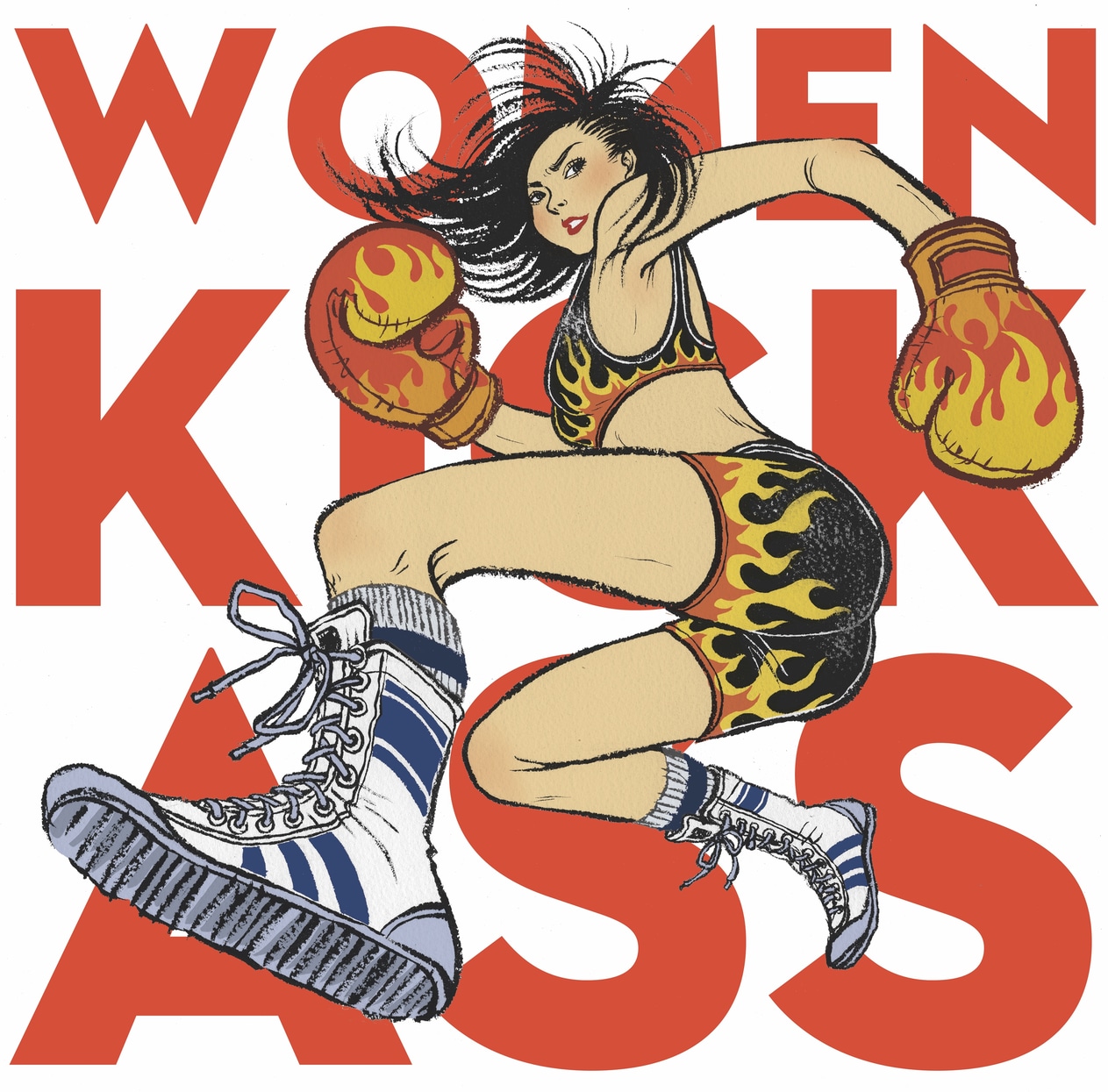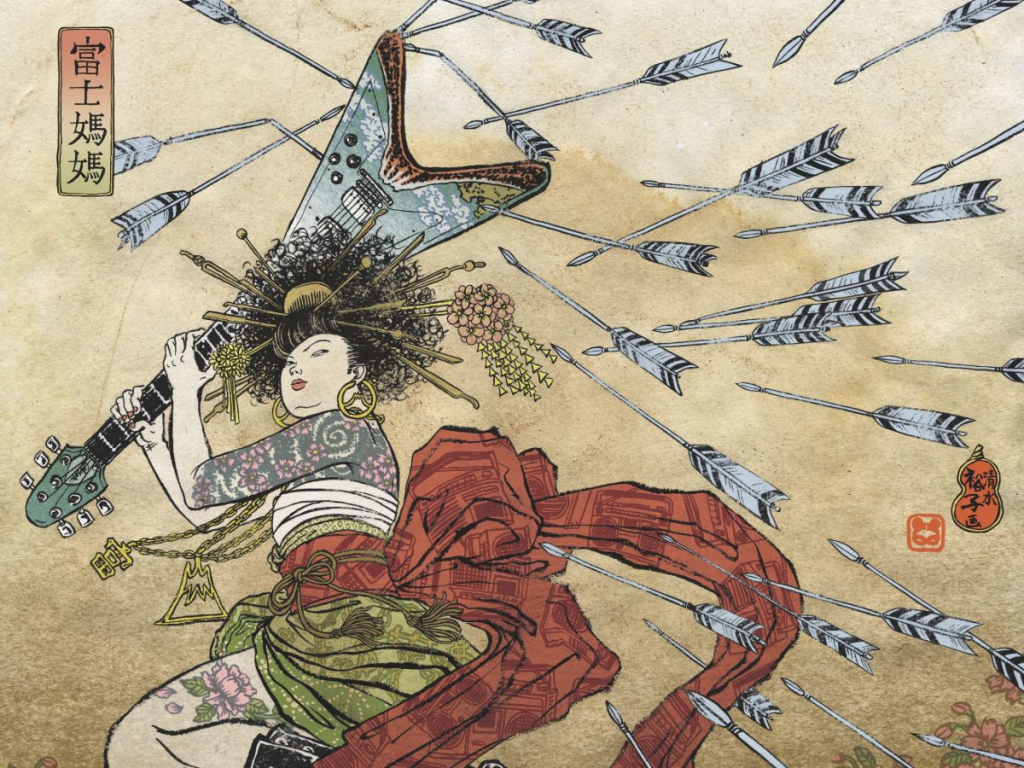Yuko Shimizu has certainly faced more than her fair share of these circumstances and as she herself attests; she is strong. Now a multi-award-winning illustrator and college art instructor based in New York, Yuko uses her art to generate conversations and to educate. So admired is her work and progressive attitude that in 2009 she was named by Newsweek Japan as one of the “100 Japanese People the World Respects.” She has also received over 15 medals from the Society of Illustrators and most recently was awarded the prestigious Caldecott Honor, one of the highest awards for picture books in the States, for her illustration of the book The Cat Man of Aleppo, based on a true story.
Talking with Shimizu, you can hear her passion, her humor and her determination to create art that is true to herself; though it hasn’t been the easiest ride to get to this point.

Born in Tokyo, she spent her middle school years in New York, where she attended a local American school rather than a Japanese private school. Because of this integration in the States, on returning to Japan Shimizu found herself a kikoku-shijo, an “outsider,” with thoughts and opinions that didn’t fall in line with her peers.
“I came back and I think I was opinionated from a very young age, it was my natural personality, but now it was enhanced 100 times,” she says. “But I also didn’t feel I was very American. I always felt I didn’t fit in in my American school. I was only there for four years and I thought differently. Even in art class I used the colors differently, but what’s good about New York is they think ‘yeah she is different but whatever.’ Back in Japan it was not like that and so for the 18 years I was back in Japan, I was thinking of how to go back to New York.”
During those years Shimizu graduated from Waseda University where she studied advertising and joined the manga club, and then spent more than a decade working in the PR department for a trading firm in Tokyo. Facing sexism and alienation in each, she still found ways to fit her passion for drawing into her work.

“During my 11 years working in a big corporation I had some mentally abusive bosses and colleagues, male colleagues who think that women are tea-making machines. So I knew from day one that I’m not going to get promoted,” she says. It wasn’t until her 30s that Shimizu returned to the States to study art and work towards being a professional illustrator. Returning to New York had its own challenges.
“After I moved back here as an adult I quickly realized how men perceived Asian women and I became disgusted. I didn’t know this part of the culture because I was a kid when I was last here and now I came back as an adult, female, and this is kind of gross,” she says. “Asian women, East Asian women, are considered meek and submissive and that’s a Western stereotype and stereotypes do to an extent come from how we as Asian women behave or are taught to behave in our own culture.”
Shimizu uses her art to challenge these perceptions, depicting women, especially East Asian women as “kick-ass.” She has created many portraits along this theme, one of which was widely used back in 2017’s Women’s March. Shimizu took her illustration titled “Women Kick Ass,” previously done for a feminist magazine, and made it available to download so others could use it for signs. She says, “I’m a feminist. If any woman isn’t a feminist I don’t understand it, but that is a whole other story. How do women not want other women to thrive? It’s half of the population!”

Talk turns to the rise in anti-Asian hate crime seen in the West, predominantly in the States, that has been fueled by the pandemic and the former president’s tactless and inflammatory coverage of Covid-19 as the “China virus.” Recent horrific shootings that occurred in Georgia where Asian women were the target of a white male shooter claiming to have been motivated by “sexual addiction” caused shockwaves across the country.
“It’s terrible, right now I don’t even feel like taking the subway because I don’t feel safe, which is terrible,” says Shimizu. “Otherwise I’m doing okay. I think if anything good came out of it, as horrible as it is, is that people are finally listening. Asians in the West, the US and other Western countries have been in an odd situation. We are among the most educated, Asian women are some of the highest-earning race and gender groups, but at the same time we are still a minority.”
In the days and weeks after the attack, Shimizu took to social media to repost her strong female characters. Under one she wrote “the heroine is exactly the opposite of how East Asian women are perceived. She is strong, independent and she will kick your ass. Stop fetishizing Asian women. Stop fetishizing our cultures. Protect our sisters, and brothers.”

Shimizu has many projects that she is working on at any given time, many of which she cannot discuss; such is the nature of her work. What she can tell us is that she has been illustrating for a few books that are available for purchase this year. For those who love fiction, the book The Cat who Saved Books, written by best-selling author Sosuke Natsukawa, will be on sale in English and with her illustration on the cover. For those interested in experimenting with Japanese alcohol, Shimizu collaborated with Julia Momosé to create illustrations for The Way of the Cocktail, showing cocktails throughout the micro seasons, 24 in total. To see her ongoing work and even short videos of her calligraphy technique (which are exceptionally soothing to watch), head over to her Instagram at @yukoart.









